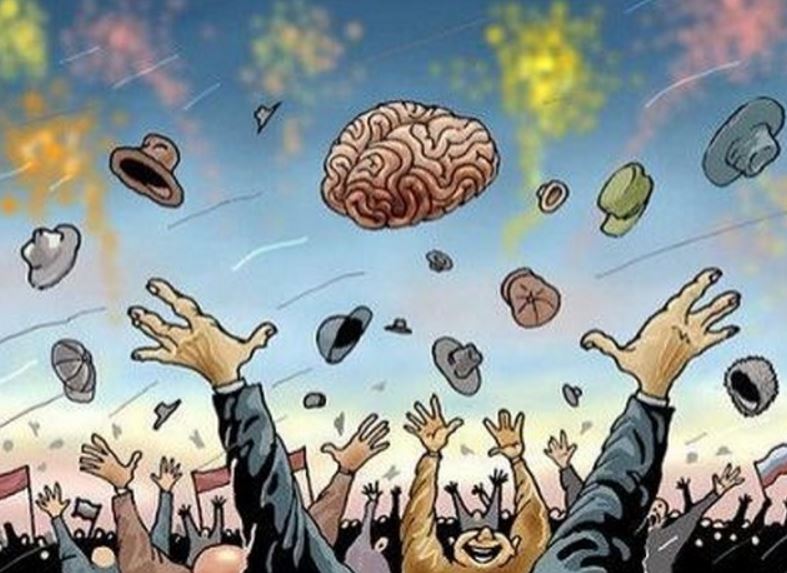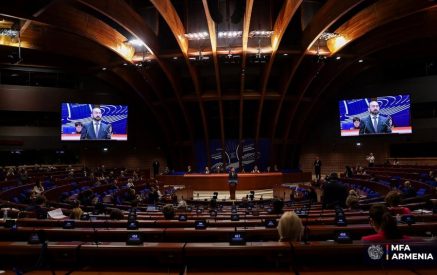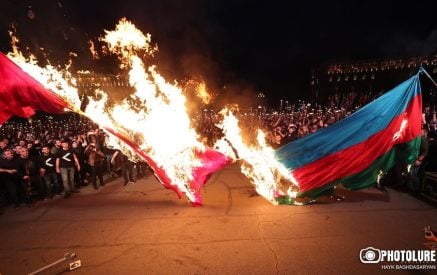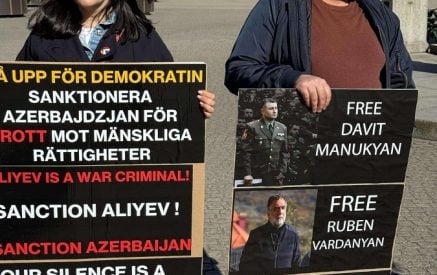What consequences will the dreams of creating a “hard regime” have?
An exciting event occurred in international life last week, which is not directly related to Armenia.
Still, if we think deeply, it says a lot about the worldwide processes. It’s about an attempted right-wing coup in Germany (at least, that’s how German law enforcement officers describe it). Last Wednesday morning, mass arrests occurred in that country among former high-ranking military and law enforcement officers. Among those arrested were also business people and public servants. It believed that the organization called “Empire Burghers” was preparing a coup d’état. The members of that group have extreme right-wing views. First of all, of course, they suffer from anti-Semitism. They claim that American bankers unleashed the First World War, and now Germany, according to these rioters, is occupied by the United States. The authors of the coup, led by a confident Prince Royce, were going to seize the Reichstag, arrest all the deputies, change the state order of the country, and create a new German army.
Why is it all interesting to us, regardless of how marginal that group is? Coming from purely political science logic, in that case, the ultra-nationalist regime, the necessity of which was raised on various platforms, replaces the current ochlocracy (mob rule) in Armenia. Let me say right away that nothing good will come out of it, but it may be a global intention. According to that logic, weakened, modernized, purely hedonistic societies should be “toked” to change their vector towards the development new German army.
Read also
The events of the last few decades give arguments to those who think in such a way. The argument goes like this: “Were you unhappy with Saddam Hussein or Colonel Gaddafi? You let them go. Did it get better after that?” No, it was worse: chaos, permissiveness, the disintegration of the state. It’s a pity that the dictators were not there.” What is wrong here? I do not see chaos as an embryo at the bottom of a dictatorship. Radicalism and extremism appear as a result of suppressing natural processes.
Dictatorship prepares chaos. But by the same logic, we can say that ochlocracy qualifies as a dictatorship. It seems that the people of Armenia are generally satisfied with today’s government: they drove out the “former ones,” eliminated corruption, etc. But during these 30 years, so today, the representatives of those masses make a reservation: “But we need a strong leader.” People my age add, “Stalin-like.” It is clear that they have not seen any Stalin; their parents and grandfathers passed on the famous myth. The great leader turned the agricultural country into an industrial one and won the Patriotic War. (When we say “myth,” it doesn’t mean 100 percent false, it’s the story our grandfathers’ generation was raised with).
The dreams of “more developed” citizens in the post-Soviet countries do not refer to Stalin but first to Pinochet and then to Lee Kuan Yew. In the early 1990s, when it became known that Thatcher and Reagan were praising Pinochet for the latter’s liberal economic reforms, which developed in the so-called “Chicago School of Economics,” it seemed to many that this was what was needed. But in the end, it was evident that killing, torturing, and deporting tens of thousands of people was not the price to pay for reforms.
Thus, the idol of many became the former Prime Minister of Singapore, whose motto was (again, according to the myth spread among us): “Put down your three corrupt friends, and the economy will take care of itself.” But first of all, no leader of Armenia has been installed and will not seat his friends. Even if he has such an intention, it will turn out that the people with the appropriate mentality will need help understanding it.
Second, in addition to the installation, it is necessary to establish a meritocratic regime, that is, the government of the worthy. In particular, the economic bloc needs competent, powerful brains capable of non-standard decisions. Figures like Vahan Kerobyan hardly meet those standards.
Finally, if the head of state has broad powers to limit freedoms (wider than in today’s Armenia or Russia), there is no guarantee that we will have Lee Kuan Yew. Rather than, say, Mobutu, the former leader of the Congo, who means the father of his country, has cursed.
So, the global trend to create “hard regimes,” although understandable and explained mainly by disappointment in democratic values, is a non-perspective, dead-end path. On the other hand, we will also pass this stage.
Aram ABRAHAMIAN
“Aravot” daily newspaper, 14.12.2022























































